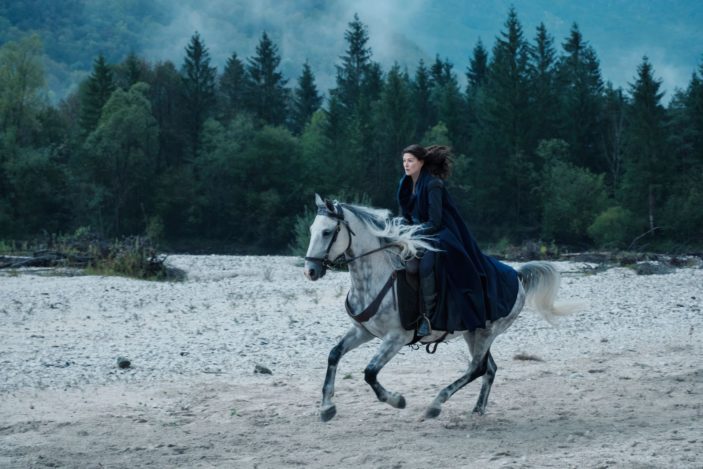
Although the fantasy genre had always had a dedicated fanbase, one could argue that it wasn’t until the filmic adaptations of the Lord of the Rings in the early 2000’s that it truly became a classification known and embraced by a mainstream audience. Second to that, in a more culturally relevant manner, Game of Thrones undoubtedly earned similar clout – if not overtook it, however momentarily – paving the way for a more confident reception when it came to fantasy-adjacent material earning substantial backing.
So where does that allow The Wheel of Time to exist? Comparisons to Game of Thrones are inevitable, even though the Robert Jordan novels on which the show is based were published before George R. R. Martin’s works, with the narrative’s focus on dragons essentially driving the season forward; perhaps to the show’s own detriment though it aims for a richer, often complex storyline that hopes to be propelled more by its emotional stakes than its fantastical elements.
At the core of the show is Moiraine Damodred (Rosamund Pike), a supernaturally-gifted woman on the hunt for a certain individual she believes is the human reincarnation of a dragon, one who has been prophesized to either restore humanity or destroy it. Supported by her faithful protector (Daniel Henney), she is drawn to a village where she encounters a quintet of potentials who allude to holding such power. As she furthers her journey though, she discovers that she is not the only one seeking out the dragon, with this urgency only fuelling her desire.
Though it’s easy to criticise the show for familiar beats and characteristics, the diversity of its cast helps with an inclusivity that wasn’t afforded to the original pages, and whilst Pike adds a certain gravitas to the show, she wisely doesn’t dominate proceedings.
The world created here is particularly intricate, and knowing that the show has been granted a secondary season helps us as an audience embrace what unfolds on-screen. Romantic inclinations and the dynamic of power between men and women in their ability to manipulate the elements – women have more free will and power of order, whilst men have had their powers corrupted by evil, essentially leading to a type of madness – feel less overwhelming in their initial introduction due to the fact that we know there’s an expansive story to come.
Though it may not be the most original-feeling show, its fantastical elements, surprisingly hard-hitting violence, and committed performances keep this Wheel turning enough to earn satisfaction from genre-appreciative audiences.
![]()
![]()
![]()
![]()
![]()
THREE AND A HALF STARS (OUT OF FIVE)
The Wheel of Time will stream exclusively on Amazon Prime Video on Friday, November 19th, 2021, releasing its first three episodes, before dropping each subsequent episode on a weekly basis.
